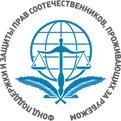Letter to the OSCE High Commissioner on National Minorities concerning education, 2014  Riga, 25 February 2014
Ms. Astrid Thors
High Commissioner on National Minorities
Prinsessegracht 22
2514 AP The Hague
Netherlands
Dear Ms Thors,
We the undersigned non-governmental organisations of Latvia are writing to you to inform on the recent developments of the issue of education in minority languages in Latvia and the politicized misuse of the Hague recommendations created under auspices of the HCNM.
The network of minority schools (almost exclusively, those are public ones, and, therefore, already bilingual in their practice) is being gradually abolished. In 2002/2003, there were 280 minority schools (or minority „streams”, when one school provides both Latvian-language and bilingual „minority” education programmes, for different groups of pupils) in the country. In 2012/2013, there were only 173. The number of schools and „streams” working in Latvian language only is decreasing, too, due to demographic issues, but much slower (respectively, there were 844 and 699 such schools). As a result, minority education is virtually unavailable in the smaller towns and rural areas of Western and Northern Latvia. An example receiving attention of the European Commission against Racism and Intolerance was the closing of the last minority (Russian-language) classes in the town of Tukums, unsuccessfully contested before courts.
The tertiary education system does not provide schools with teachers specifically taught to teach in minority schools, using minority languages as language of instruction (except teachers of languages themselves).
In 2012, Section 41 of the Education Law was amended, depriving public minority schools of the right to choose their own models of use of languages of instruction in grades 1 to 9 (basic school). The models provided by the government are rather various, but the current minister of education has announced an aim to achieve use of model No. 1 in most schools by 2018. It allows no more than 12 lessons a week (from 34) to be taught in a minority language of bilingually, by grade 9.
Starting with 2008/2009 academic year in 10th grade and by 2010/2011 academic year in 12th grade of minority schools tuition in the subjects of Latvian language and literature should follow the curriculum of Latvian-language schools. The first unified exam of Latvian language and literature (also applicable to private minority schools) was in 2012, and since that time, the publication of exam results for Latvian schools and minority schools as groups was discontinued. However, the results of every particular school are still published. After generalization, the results of 2013 exam are as follows:


It has to be noted that the results of the exams have an impact on the possibility to receive tertiary education in publicly-funded universities and colleges. The lack of distinction between pupils learning in Latvian only and bilingually, in the present situation, may amount to discrimination.
Exclusion of Russian as a medium of instruction from public universities and pressure exerted on minority schools have resulted in a growing difference in shares of people with tertiary education between ethnic Latvians and minorities.

It should also be noted that introducing Latvian language as a partial medium of instruction in minority basic schools has not resulted in clear improvement of Latvian language skills, as shown by the results of final exams. The limitations in access to numerous professions, depending on the results of the language exams, remain in place for graduates of basic schools.

The most pressing concern with relation to linguistic discrimination is connected with the attempts to abolish instruction in minority languages in public education, save the subjects connected with the minorities’ identity. In January, 2014, drafting legislation for this aim, scheduled to be implemented in 2018, was included in the co-operation agreement between the political parties forming the new government. An attempt to switch all public kindergartens to Latvian as the medium of instruction was rejected in the Parliament in May 2013, but only with 43 votes „against” and 2 abstentions – 41 votes, including most of the ruling parties, were cast „in favour” of moving the bill forward.
Also, the Ombudsman Mr. Juris Jansons has called to introduce education in Latvian language only (save the minority language, literature and culture) for pupils after 5 or 6 years of having been educated in Latvia. One of the main reasons included in his letter to the President Andris Bērziņš in January 2014 is a mistranslation of the OSCE Hague recommendations regarding the education rights of national minorities.
While the recommendations on secondary school (which starts in Latvia since grade 10, not 6 or 7) read as follows: „13 (..) the number of subjects taught in the State language, should gradually be increased. Research findings suggest that the more gradual the increase, the better for the child”, the Ombudsman cites them as saying „In secondary schools, the number of subjects taught in the State language, should be increased essentially. Research findings suggest that the more pronounced the increase, the better for the child”.
In the same time, the Ombudsman fully omits the beginning of the same para. 13., which reads „13. In secondary school, a substantial part of the curriculum should be taught through the medium of the minority language”, in his letter.
We hope your voice in favour of diversity in education (while acquiring official language skills) will be convincing for the Latvian authorities.
Enclosed: list of NGOs co-signing the letter
Sincerely yours,
__________ A. Kuzmins, Latvian Human Rights Committee
Sources of the data: for 2002 and 2007 -
How Integrated Is Latvian Society? An Audit of Achievements, Failures and Challenges / Editor Nils Muižnieks;– Riga: University of Latvia Press, 2010. – 292 pp, ISBN 978-9984-45-172-5. – p. 129
For 2011 - population census data, table TSG11-19, www.csb.gov.lv
(lowest level - A1 or A2 , highest level - C1 or C2 by the Common European Framework of Reference). Data source - National Centre for Education, www.visc.gov.lv
| 

